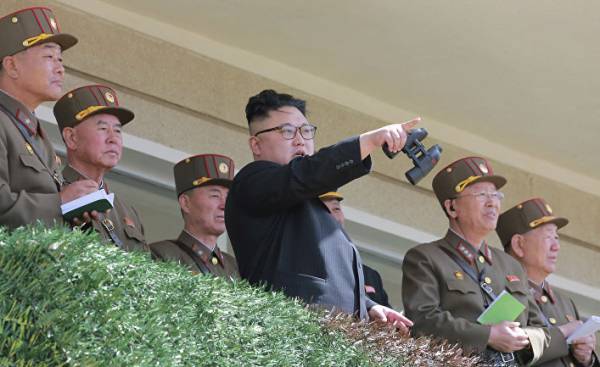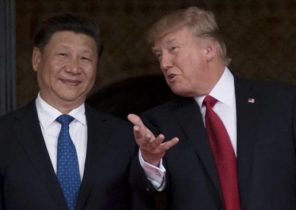
Since 2006, when North Korea got the atomic bomb, the United States seriously engaged in the far East region. This small country with a dictatorial regime is a direct threat to two close allies of the United States. For South Korea, located in the South of the Peninsula, and Japan. We’re talking about Japan, which experienced a deep trauma after the Second world war became the target of the atomic bombing. The public at each of those two countries with high levels of welfare and education understand the seriousness of the situation and knows what it means to be the target of atomic bombs.
North Korea to further strengthen its position, is working on technology to produce long-range missiles capable of bring nuclear warheads in its possession, to the United States. According to reports, she has the technology of medium-range missiles. This situation is every day more concerned about the United States.
Another point which further complicates the problem is, who keeps his finger on the launch button for nuclear weapons and how the decision-making process it involves. In other words, a terrible nuclear weapons makes not only its existence, but in whose hands it is in. Considering the dictatorial regime of North Korea, it becomes even more clear why alarmed the US and its allies.
When there is an escalation of the North Korean problem, the United States begin to demonstrate three different responses. First, they “ask” China to pay attention to North Korea. The DPRK has a nuclear bomb, but has a weak economic potential, therefore, needs China in all spheres. And China, seeing the situation, more actively takes on the role of the “mediator, conciliator”.
Second, U.S. officials, to loosen, begin a diplomatic tour. By tradition, the Secretary of state of the United States does the usual, “reassurance” visits to the region. Finally, the U.S. is sending aircraft carriers to the region, trying to threaten North Korea and give confidence to its allies. When you look at the current picture we can say that the problem will remain on the agenda for many years. But, obviously, this crisis is a cautionary side to all States and politicians.
The first example that comes to mind is the Iranian nuclear issue. Armor “untouchability” that North Korea acquired when acquired the atomic bomb and went up in the “first League” must be unbearably attractive to Iran. Probably the events in the far East, Iran is watching in this framework.
However, another aspect that will surely draw lessons from all these events, no doubt, will the American administration. USA that you see how narrowed their room for maneuver before North Korea does not want any such pictures in the middle East with respect to Iran. If the United States — including at the insistence of Israel, they are an indispensable ally in the region — will be convinced that the middle East should not repeat new North Korean experience could be followed by some preventive measures.







